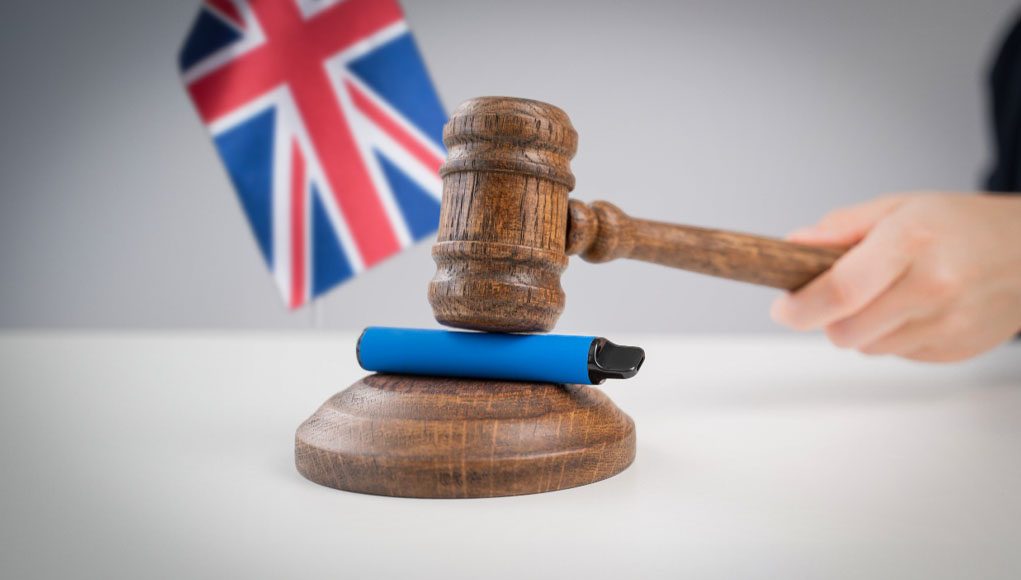Meanwhile, research conducted by Dr. Sarah Jackson at UCL shed some light on the potential impact of the ban. The study estimated that about 744,000 former smokers could be at risk of relapse once disposables are no longer available. While approximately 1.2 million current smokers could benefit from switching to e-cigarettes entirely.
The government failed to determine how the ban will affect local smoking rates
While banning disposables may seem like a solution to reduce youth vaping, the research revealed the potential unintended consequences for adult smokers seeking safer alternatives, and therefore the need for careful consideration and support mechanisms to mitigate the risks associated with such a policy change.
Given their cheaper price tag, disposable vapes are disproportionately used by individuals from lower socio-economic backgrounds and those with mental health conditions. This highlights the importance of providing support to help these individuals transition to other forms of vaping following the ban, rather than reverting to smoking.
Proceeding with blinkers on
The government’s plan to go ahead with the ban when its outcome is uncertain, is naturally being considered concerning and unacceptable. Local authorities should know to conduct robust risk assessments before setting any measures in place. In fact, as discussions around further vape restrictions, such as flavour bans, continue, it becomes increasingly crucial to accurately assess the potential impact on public health.
A recent survey conducted by Evapo, revealed that up to two-thirds of vapers may return to smoking if the Government implements a ban on vape flavour, once again highlighting the potential repercussions of ill-considered policies on smoking cessation efforts.
In line with this, the World Vapers Alliance (WVA) has recently criticized the UK government’s Tobacco and Vapes Bill, which amongst other things includes the flavour ban. WVA Director Michael Landl highlighted that such restrictions ignore scientific evidence showing vaping’s efficacy in smoking cessation, with flavoured vapes increasing success rates by 230%.
Highlighting vaping’s 95% reduced harm compared to smoking and its effectiveness over traditional smoking cessation methods, the WVA warns against undermining harm reduction efforts, which could lead to unnecessary deaths. Landl urges the government to reconsider its approach, advocating for evidence-based policies, robust enforcement of age restrictions, and a deeper understanding of vaping motivations, especially among teenagers.
The final straw: a new vape tax
Sadly it does not end here. To the shock of many, in the last Budget Chancellor Jeremy Hunt also announced a new tax on vaping products, effective October 2026. Currently, vaping products are subject to value-added tax (VAT) but do not have a separate levy like tobacco. The proposed vaping products duty will vary based on the nicotine content in the vaping liquid: £1 per 10ml for nicotine-free liquids, £2 per 10ml for liquids containing 0.1-10.9mg of nicotine, and £3 per 10ml for liquids containing 11mg or more, roughly equivalent to the cost of a cigarette per ml.
To ensure vaping remains cheaper, tobacco duty will increase by £2 per 100 cigarettes simultaneously with the introduction of the vaping tax. However, setting a tax on vaping products, especially when disposables (being the cheaper type of vapes on the market) are to be banned, once again indicates a lack of consideration towards vapers, especially those who are low-income.
Previously a leader in tobacco harm reduction, with local low smoking rates reflecting this, why the UK seems to be buying into the alarmist teen vaping propaganda, and changing its existing successful strategy, is incomprehensible. Experts in the field are desperately urging UK authorities to consider the science, real-world data and its own successes, to determine the way forward.
Many UK Smokers Are Misinformed About The Relative Risks of Vaping








